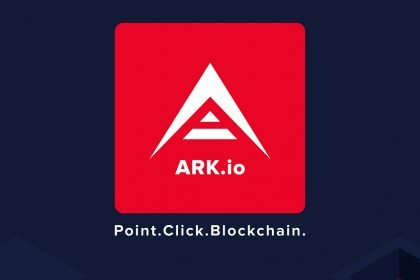A decentralized platform ARK has created a better core program for its ecosystem that is due to replace the current one on 28th of November.
ARK represents itself a decentralized platform that allows developers to customize the basic code of the ARK system. This gives developers the flexibility to modify or replace any part in accordance to their requirements. Using this approach, developers can take advantage of the standardized feature and still retain the flexibility of custom developing.
Chains developed on the ARK ecosystem are compatible and allow for interoperability. This means that instead of having different chains, where data transfer is not possible, ARK creates a whole spiderweb of interconnected chains with dApps and other softwares and data having plug and play functionality.
The ARK team has created a better core program for the ARK ecosystem that is due to replace the current one on 28th of November. The Version 2 core has been built from the ground up and carries a number of features, which where not included in its predecessor.
Dynamic Fee feature allows users to set the fee they see fit for their transactions. If their request matches with a delegate’s set rate, the transaction can occur. This allows users to match with economical delegates or ones who would process requests faster.
With the new efficient core, transactions per second will increase threefold from 6.25 to 18.75. This is due to the triple increase of transactions recordable in a block (from 50 to 150). Most of ARK’s processes have been redesigned to be modular that can be added or dropped easily. The modular approach gives the ARK ecosystem its flexibility and scalability.
The new version also offers Improved Transaction Pool Management, which makes the transaction pool more stable and reliable due to the power of memory and SQlite. With more endpoints and following the latest standards, the upgraded API is more powerful and robust.
And, finally, the last but not the least feature is Webhook. Allowing applications to push data onto other apps in real time, Webhook works better and faster than traditional APIs.
The new core will be installed through a hardfork, meaning nodes will need to update their old codes with the new core ones. End users, on the other hand, don’t need to worry. They simply need to install the new wallets which will be available before the upgrade.
Apart from the updates to the core, ARK is also planning further updates, such as an open source library for merchants and other vendors to allow acceptance of ARK as a payment option, a new desktop wallet with improved security features and UI, and lastly, a complete redesign of the whitepaper to reflect the massive upgrade.
As soon as the Core v2 is applied on the network and any subsequent bugs are ironed out, the ARK team will immediately start work on the next v2.1 update of the core. The future update will have more functions, such as timelock, multi payment support, SmartBridge field size increased from 64 to 256 characters and a single touch “Push.Button.Blockchain” for the ultimate inter-chain compatibility.
next